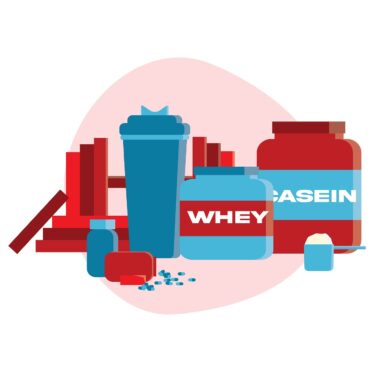The Impact of Gut Health on Endurance Performance
Endurance athletes rely heavily on their physical and mental state to perform at their best. One major factor impacting their performance is gut health, which plays a vital role in digestion and nutrient absorption. A healthy gut microbiome promotes efficient energy use, reducing the risk of gastrointestinal distress during long events. This is important because many athletes frequently experience issues like bloating or upset stomachs, which can lead to decreased performance. Understanding how to optimize gut health through diet is crucial. Nutrient-rich foods like fruits, vegetables, and whole grains support a healthy microbiome. Additionally, including probiotics and prebiotics can benefit gut flora balance. Regular consumption of fermented foods such as yogurt, kefir, and sauerkraut can also enhance gut health. To aid digestion, endurance athletes should also maintain proper hydration and digestible snack intake before and during events. Finding the right balance of macronutrients, fiber, and hydration can enhance energy availability and recovery, thus supporting overall performance. Therefore, gut health should be prioritized to help athletes reach their endurance goals and improve their competitive edge.
Understanding the Gut-Microbiome Connection
The human gut is home to trillions of bacteria, collectively known as the gut microbiome. This complex ecosystem plays a key role in many physiological functions, including metabolism, immune function, and overall health. For endurance athletes, these bacteria are crucial in breaking down food substances, providing energy, and regulating inflammation. A diverse microbiome is essential; it can enhance nutrient absorption and reduce fatigue. Studies have shown that an imbalanced gut microbiome may contribute to performance decrements. Factors such as diet, stress, and antibiotic use can disrupt this balance, leading to gut dysbiosis. This condition can hinder an athlete’s recovery and performance levels. To maintain a thriving microbiome, athletes should include a variety of fiber-rich foods, vitamins, and antioxidants in their diets. Foods such as legumes, fruits, and vegetables not only provide necessary fibers but also promote the growth of beneficial bacteria. Additionally, understanding the importance of timing and composition of meals can support optimal energy levels and gut function during rigorous training and competition. By focusing on gut health, athletes can enhance their performance and overall well-being.
Gut health also significantly impacts the immune system, particularly for endurance athletes who may be more susceptible to illness due to intense training regimens. A strong immune system is paramount for recovery and overall athletic performance. Research has shown that a well-functioning gut microbiome can enhance immune responses by fostering beneficial bacteria that combat pathogens. Incorporating specific food sources such as berries, nuts, and seeds can support immune function. These foods are rich in antioxidants and vitamins that fight inflammation and oxidative stress caused by prolonged exercise. Furthermore, it’s important for athletes to manage their stress levels, as chronic stress can negatively influence gut health. Stress management techniques such as yoga, meditation, and adequate rest can significantly improve gut function and immune response. Proper sleep hygiene is also crucial for recovery. Athletes must prioritize sleep to ensure optimal recovery, nutrient absorption, and digestive health. Evolving scientific research highlights the interconnected relationship between gut health, immune system responses, and athletic performance. By optimizing these factors, athletes can develop a sustainable strategy for peak performance.
Dietary Strategies for Enhancing Gut Health
For endurance athletes striving for peak performance, dietary strategies that focus on enhancing gut health are crucial. Among the most effective approaches involves consuming a diverse range of foods to promote a healthy microbiome. Including fibers, which act as prebiotics, can encourage the growth of beneficial gut bacteria. Foods such as oats, bananas, onions, and garlic are excellent sources of fiber and essential nutrients. Additionally, increasing water intake ensures proper hydration and supports overall digestion. Athletes should also pay attention to proteins from varied sources, including legumes, fish, and nuts, which help in muscle recovery and gut health. Combining nutrient-rich carbohydrates with proteins post-workout fuels recovery and replenishes glycogen stores. It’s particularly important to avoid excessive intake of processed sugars and fats, as these can lead to gut imbalances and inflammation. Instead, athletes should focus on whole foods with minimal processing. Incorporating fermented foods and beverages, such as kimchi, kombucha, and yogurt, can also support gut health through beneficial probiotics. Simple dietary adjustments can significantly improve gut efficiency, thus promoting athletic performance.
Additionally, customizing a tailored nutrition plan around individual gut health needs can provide endurance athletes with a competitive edge. Each athlete’s gut microbiome is unique, and personalized nutrition can help address specific digestive issues or preferences. Working with a sports nutritionist can enable athletes to identify food sensitivities and optimize their intake of gut-friendly nutrients. Paying close attention to meal timing before, during, and after exercises is also essential. Pre-exercise meals should focus on easily digestible carbohydrates and proteins to fuel the body without causing gastrointestinal distress. During long events, athletes might consider consuming simple carbohydrates through gels or drinks to maintain energy levels. Post-exercise nutrition must encompass proteins and carbohydrates in the right proportions to support recovery and gut health. Experimentation with foods during training can help athletes identify the best options that minimize gastrointestinal issues on race day. Implementing a systematic approach to nutrition based on gut health and individual needs will enhance stamina and overall performance. Athletes should remain flexible and continue to adapt their nutrition strategies as they discover what works best for them.
The Role of Supplements in Gut Health
In addition to dietary adjustments, certain supplements play a significant role in supporting gut health for endurance athletes. Probiotic supplements are increasingly popular among athletes as they help reseed the gut with beneficial bacteria, especially after courses of antibiotics or periods of intense training. Some studies suggest that probiotics can decrease the incidence of upper respiratory infections, allowing athletes to maintain consistent training. Prebiotic fibers can also be taken as supplements, enhancing gut bacteria growth and improving overall gut function. Other notable supplements include L-glutamine, which aids in maintaining gut integrity and prevents permeability issues, often associated with high-stress endurance activities. Digestive enzymes can also support athletes whose digestive systems may struggle under heavy training loads. As with any supplements, it’s vital to consult a healthcare provider or sports nutritionist to determine their necessity and appropriate dosage. Randomized controlled trials are necessary to establish the exact benefits and effectiveness of these supplements. However, pairing these options with a balanced diet can yield impressive results in enhancing gut health, leading to improved endurance performance in athletes.
Ultimately, the impact of gut health on endurance performance cannot be overstated. Athletes need to prioritize their gut health to enhance physical performance and overall well-being. By understanding the critical role that gut health plays, endurance athletes can make informed dietary choices that boost their microbiome. Effectively managing nutrition through a combination of rich, whole foods, hydration, and, when necessary, supplements, becomes key. Emphasizing the preventative aspects of gut health, such as reducing inflammation and supporting immune function, will lead to fewer interruptions in training due to illness or gastrointestinal distress. Athletes should remain consistent in their approach, monitoring their gut health continuously. Adapting dietary strategies over time can lead to sustainable performance benefits and ensure they reach peak potential during competitions. As research continues to evolve, athletes will have access to even more tailored approaches to include gut health in their training plans. With this knowledge, endurance athletes can not only enhance their performance but also enjoy longer, healthier careers in the sport.
Conclusion: Embracing Gut Health for Optimal Performance
In conclusion, endurance athletes must embrace gut health as a central component of their training and nutrition regimen. Understanding the profound impact of the gut microbiome on performance and recovery will empower athletes to optimize their routines. Nutrition choices, coupled with strategic supplementation and lifestyle adjustments, contribute to improved gut health. Athletes can enhance their training and competitive results by focusing on nutrient-rich foods, hydration, and gut-friendly practices. Moreover, prioritizing a personalized approach aligned with their unique digestive needs can significantly enhance performance outcomes. The relationship between gut health and endurance performance is strong, with research indicating a clear link. Athletes must be proactive in their gut health strategies, continuously evaluating and adapting their nutritional practices. As they embark on their journey toward better gut health, they can help ensure that they achieve their goals while minimizing health risks. Thus, fostering a resilient gut can lead endurance athletes to not only excel during competitions but also enjoy an overall healthier lifestyle.








